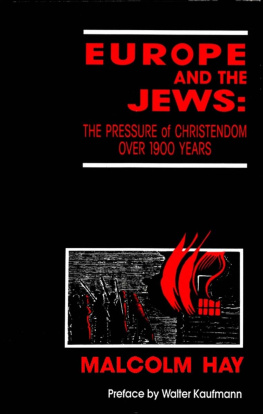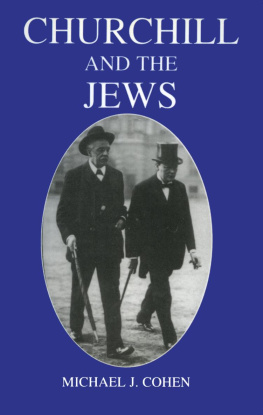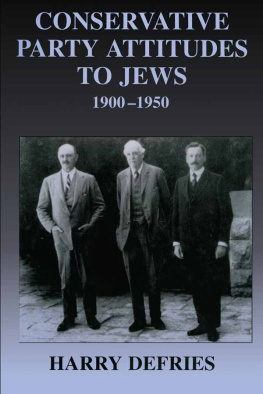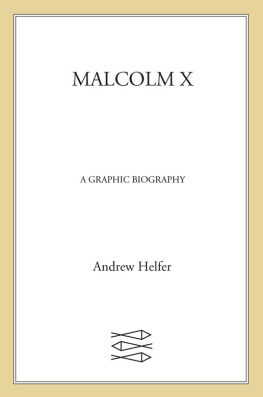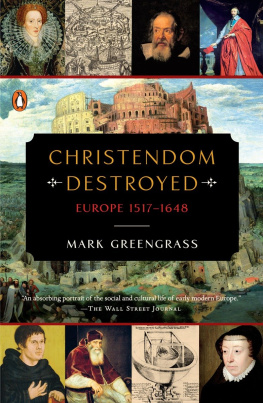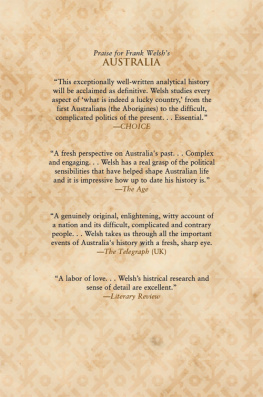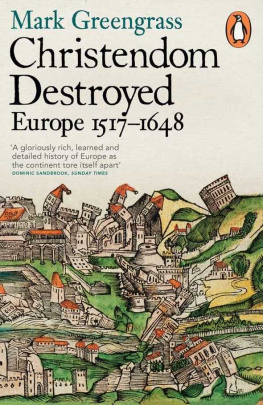Hay Malcolm - Europe and the Jews: The Pressure of Christendom over 1900 Years
Here you can read online Hay Malcolm - Europe and the Jews: The Pressure of Christendom over 1900 Years full text of the book (entire story) in english for free. Download pdf and epub, get meaning, cover and reviews about this ebook. City: Chicago, year: 2005;1992, publisher: Chicago Review Press, Incorporated, Independent Publishers Group [distributor, genre: Religion. Description of the work, (preface) as well as reviews are available. Best literature library LitArk.com created for fans of good reading and offers a wide selection of genres:
Romance novel
Science fiction
Adventure
Detective
Science
History
Home and family
Prose
Art
Politics
Computer
Non-fiction
Religion
Business
Children
Humor
Choose a favorite category and find really read worthwhile books. Enjoy immersion in the world of imagination, feel the emotions of the characters or learn something new for yourself, make an fascinating discovery.
- Book:Europe and the Jews: The Pressure of Christendom over 1900 Years
- Author:
- Publisher:Chicago Review Press, Incorporated, Independent Publishers Group [distributor
- Genre:
- Year:2005;1992
- City:Chicago
- Rating:5 / 5
- Favourites:Add to favourites
- Your mark:
- 100
- 1
- 2
- 3
- 4
- 5
Europe and the Jews: The Pressure of Christendom over 1900 Years: summary, description and annotation
We offer to read an annotation, description, summary or preface (depends on what the author of the book "Europe and the Jews: The Pressure of Christendom over 1900 Years" wrote himself). If you haven't found the necessary information about the book — write in the comments, we will try to find it.
Hay Malcolm: author's other books
Who wrote Europe and the Jews: The Pressure of Christendom over 1900 Years? Find out the surname, the name of the author of the book and a list of all author's works by series.
Europe and the Jews: The Pressure of Christendom over 1900 Years — read online for free the complete book (whole text) full work
Below is the text of the book, divided by pages. System saving the place of the last page read, allows you to conveniently read the book "Europe and the Jews: The Pressure of Christendom over 1900 Years" online for free, without having to search again every time where you left off. Put a bookmark, and you can go to the page where you finished reading at any time.
Font size:
Interval:
Bookmark:

Let not the foot of pride come against me, and let not the hand of the wicked remove me.
PSALM XXXVI: II
Published in 1992 by
Academy Chicago Publishers
213 West Institute Place
Chicago, Illinois 60610
Copyright 1950 by The Beacon Press
(under the title, The Foot of Pride)
Preface Copyright (c) 1960 by Walter Kaufmann
Copyright renewed (c) 1988 by Hazel D. Kaufmann
Printed and bound in the USA
No part of this book may be reproduced in any form without the express written permission of the publisher.
Cover design by Julia Anderson-Miller
So I considered again all the oppressions that are done under the sun;
And beheld the tears of such as were oppressed, and they had no comforter;
And on the side of the oppressors there was power,
But they had no comforter.
Wherefore I praised the dead that are already dead
More than the living that are yet alive;
But better than they both is he that hath not yet been,
Who hath not seen the evil that is done under the sun.
ECCLESIASTES IV: 13
To
Alice Ivy Hay
Index
O THER B OOKS BY M ALCOLM H AY
Wounded and a Prisoner of War 1916
A Chain of Error in Scottish History 1927
The Blairs Papers (16031660) 1929
The Jesuits and the Popish Plot 1934
Winston Churchill and James II 1934
The Enigma of James II 1938
I T IS THIRTY-SIX YEARS NOW since in the late summer of 1914 Captain Malcolm Vivian Hay of Seaton, Aberdeen, crossed the English Channel with the 1st Gordon Highlanders and followed the country roads of France to a place called Mons. He knew France well, and in the villages where the troops paused to rest he talked with farmers and shopkeepers in their own language. They seemed undisturbed by the idea of battle; their primary interest was in le kilt. They felt the cloth, looked at the sporran and apron, and said, Mais en hiver a doit tre terrible!
Near Mons the Highlanders turned left into a beet field. They were told to dig a trench; while they worked a man in the next field planted cabbages. When they were finished and had settled in, patches of gray appeared at the edge of the wood they faced; the slim British Expeditionary Force had walked into the swinging right arm of the German field army. For a long day and a longer night the 3rd Division, of which the Highlanders were a part, held off the German advance. The odds against them in manpower were ten to one; in artillery, seven to one.
He stood at the parapet, watching the battle through field glasses until, as he recalled it later, a machine gun in the village of Bethancourt started to play up and down the trench. The bullets began to spray too close to my left ear, and laying my glasses on the parapet, I was about to sit down for a few minutes rest, and indeed had got halfway to the sitting position, when the machine-gun found its target I knew instantly what had happened. The blow might have come from a sledgehammer, except that it seemed to carry with it an impression of speed. I saw for an instant in my minds eye the battlefield at which I had been gazing through my glasses the whole day. Then the vision was hidden by a scarlet circle, and a voice said, Mr. Hay has got it. Through the red mist of the scarlet circle I looked at my watch (the movement to do so had begun in my mind before I was hit); it was spattered with blood; the hands showed five minutes to four. The voice which had spoken before said, Mr. Hay is killed.
He began to lose consciousness then, and he thought, Is this the end? The answer was immediately in his mindNot yet. He was unconscious for a while, and then revived, feeling pains in his legs. Private Sinclair, the man who had pronounced him dead, saw that he was breathing and laid him on the straw which covered the bottom of the trench, putting a bandage on his wounded head and trying to give him a drink from his water bottle. Captain Hay tapped the breast pocket of his jacket, where he carried a flask of old brandy. The Red Cross book stated that brandy was the worst possible thing for a head wound, but Private Sinclair poured the entire contents of the flask down his captains throat. He regained consciousness and felt better, and when Private Sinclair and another soldier attempted to remain with him after the battalion began its retreat he ordered them away.
After a night in the beet field Captain Hay was found by the Germans and turned over to members of the French Red Cross, who took him to a hospital at Caudry. There he again heard himself pronounced dead, and received, being a Roman Catholic, Extreme Unction, the last sacrament. There is between life and death, he later wrote, a period when the normal process of thought comes to an enda new mode of consciousness is taking the place of the oldthe soul, standing on the threshold, looks back at the body lying helpless. During the night, in that little room in Caudry I was slowly discovering another self, distinct from the body lying on the bed, and yet connected with it in mist and shadow; and this was the shadow of death.
He rallied from this crisis and began to convalesce, discovering that as a result of his wound he was partially paralyzed. He was moved to the civil hospital at Cambrai, where the Germans were in occupation. There on Saint Andrews Day his French nurse, knowing the occasion was important to a Scotsman, brought him a delicacy, a dish of snails. He had to eat them, and he liked them. Soon afterward the Germans took him from the French and sent him to Wrzburg, to the fortress prison of Marienburg. There he and other prisoners of the allied forces were treated badly; he saw the German mindthe mind that a generation later produced Nazismat work: We lived in the very midst of an organization which moved as one for one purposethe destruction of European civilization and the substitution of Teutonic conceptions.
In February of 1915 he was exchanged, being judged unfit for military duty, and returned to England. In London he fought his paralysis and learned to walk with the aid of a cane; he entered the intelligence service, organized a group of young university men for cryptographic work, and made a contribution to the war effort which would have irritated the jailers of Marienburg had they known of it. He also set down his experiences as a soldier and prisoner, and the story appeared in Blackwoods Magazine; Captain Hay preferred to remain anonymous, and identified himself in the narrative as Mr. H. In 1916 the story was published as a book: Wounded and a Prisoner of War, By an Exchanged Officer. It was well received by the critics and became a best seller; it was the first of the many worthwhile books written by soldiers of the 191418 war. Its style, form, and clarity were praised, and this rather astonished Captain Hay, who had not fancied himself as a writer or thought of writing as a career. When the fighting stopped and he went back to Scotland the idea of writing as a career went with him; he found it an excellent companion for a man faced with the problem of permanent semi-invalidism, and he accepted it as such.
His home was at Seaton, an estate near Aberdeen which had been bought in the middle of the eighteenth century by his great-grandfather, Mr. Forbes, of Forbes and Company, Bombay. In 1813 Mr. Forbes only child, Elizabeth, married Lord James Hay, second son of the seventh Marquis of Tweeddale, who was aide-de-camp to Wellington at Waterloo, and afterwards Military Governor of Paris. It is interesting to recall that Lord James was for a short time in command of the Grenadier Guards when they were stationed at Cambrai in the winter of 1815almost exactly a hundred years before his grandson occupied a bed in a hospital of that city.
Next pageFont size:
Interval:
Bookmark:
Similar books «Europe and the Jews: The Pressure of Christendom over 1900 Years»
Look at similar books to Europe and the Jews: The Pressure of Christendom over 1900 Years. We have selected literature similar in name and meaning in the hope of providing readers with more options to find new, interesting, not yet read works.
Discussion, reviews of the book Europe and the Jews: The Pressure of Christendom over 1900 Years and just readers' own opinions. Leave your comments, write what you think about the work, its meaning or the main characters. Specify what exactly you liked and what you didn't like, and why you think so.

